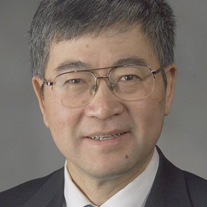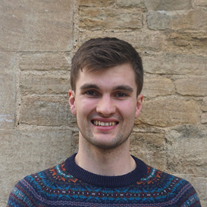Join the Machine Learning in Medical Imaging Consortium (MaLMIC) for an opportunity to network
Machine Learning in Image Reconstruction
Friday, January 20, 2023
3:00 to 4:30 p.m. ET
For the January forum on machine learning in image reconstruction, the first presentation by Ge Wang, a researcher, will be about CT image reconstruction and the second presentation by Charlie Millard, a postdoctoral fellow, will be about MRI image reconstruction. The talks will be followed by discussion focused on lessons learned, opportunities to collaborate, and sharing of resources.
Interested in joining? Please contact us.
Machine Learning in Image Reconstruction
Friday, January 20, 2023
3:00 to 4:30 p.m. ET
For the January forum on machine learning in image reconstruction, the first presentation by Ge Wang, a researcher, will be about CT image reconstruction and the second presentation by Charlie Millard, a postdoctoral fellow, will be about MRI image reconstruction. The talks will be followed by discussion focused on lessons learned, opportunities to collaborate, and sharing of resources.
Interested in joining? Please contact us.


Deep learning in image reconstruction and analysis
Ge Wang, PhD
Professor, Rensselaer Polytechnic Institute
Talk summary: Artificial intelligence (AI), especially deep learning, has become a mainstream scientific approach, and enabled major advances in medical imaging, including not only image analysis (from images to features) but also image reconstruction (from data/features to images). In this presentation, a general background will be provided on deep learning-based tomographic imaging. Then, some new results will be described in the three aspects: (1) supervised, (2) semi-supervised, and (3) self-supervised deep imaging. Finally, challenging issues will be discussed, along with future opportunities.


Self-supervised MRI reconstruction: how to train a neural network to recover high-quality images from sub-sampled examples only
Charles Millard, PhD
Postdoctoral Fellow, University of Oxford
Talk summary: Most methods for MRI reconstruction with neural networks assume that a fully sampled dataset exists and use fully-supervised training. However, for many applications, such training data is not available and may be challenging to acquire in practice. In his talk, Charles will discuss self-supervised training methods, where the training data is itself sub-sampled. He will present his recent work which analytically justifies one such method, Self-Supervised Learning via Data Undersampling (SSDU), and proposes modifications and extensions that substantially improve its reconstruction quality and robustness.

